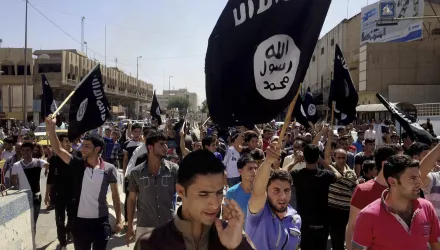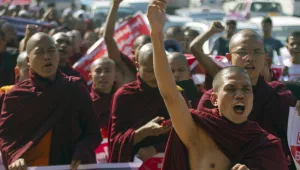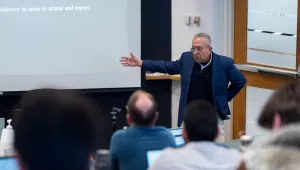The last two weeks of attacks by Israelis and Palestinians and street clashes in Jerusalem have raised questions about whether Palestinians will launch a new intifada to shake off the Israeli occupation.
That is a reasonable expectation, in view of the two previous intifadas and the continuing abuses that Palestinians suffer from Israel’s occupation, colonization and siege policies. We have already had three Palestinian intifadas against foreign domination – in 1936-39, 1987-90, and 2000-01, so we should more accurately talk about a possible fourth intifada.
I suspect, however, that this is not the likely or best outcome from the Palestinian perspective. Many expect a new intifada mainly because they cannot imagine Palestinians generating a different, more effective response to their national subjugation, since their views of Palestinians are restricted to helpless people who can only go on strike or throw stones at Israeli troops.
The Palestinian perspective is very different, for several reasons. The most important is that we have had two intifadas against Israeli occupation and they have generated no significant results in terms of liberation or national rights and reconstitution. Also, intifadas are like civil wars. A country usually only has one, very occasionally two, but never more than that, because such cataclysmic national events cannot be repeated over and over while the situation remains unchanged. Israel uses massive and disproportionate military force and cruel collective punishment against Palestinians who challenge its hold over them, and we see in this week’s attacks against Gaza that Palestinians who resist Israel can expect to get killed, bombed, injured, jailed and see their homes destroyed in large numbers – with total impunity for Israeli actions that in most other situations in the world would elicit calls for war crimes investigations.
The two previous intifadas generated no lasting improvements in Palestinian national rights due to both the intransigence of Zionism and the incompetence of the Palestinian leaderships headed by Hamas and Fatah in Gaza and the West Bank. Hamas and some other smaller resistance groups have demonstrated an impressive capacity to keep firing small rockets and explosive projectiles against southern Israel, despite the decades of massive Israeli air and ground attacks against Gaza. It seems that repeated Israeli attacks like the one underway now only fortify Hamas’ determination to resist, and increase its technical ability to protect it rocket launcher sites. Like all colonial powers, Israel seems to miss the fundamental rule that greater oppression only elicits more fierce resistance.
The problem for Hamas and armed resistance groups, however, is that their policy has not improved the lives of Palestinians, but only made them more difficult. The same goes for Fatah’s two-decades of uninterrupted negotiations with Israel, which similarly have not achieved Palestinian national rights or improved living conditions. Translating popular anger into a new intifada on the streets in the context of these same Palestinian leaderships that dominate today would be a futile effort of mass emotional and political self-expression, with no consequence other than more violent and increasingly racist Israeli reprisals.
As long as Palestinians are hobbled by their Israeli-induced fragmentation, occupation, isolation, siege and economic strangulation, and their own current incompetent leaderships, they will find it very difficult to generate a more effective response to their sustained pain and vulnerabilities. Yet alternatives to this condition have already appeared here and there in contemporary Palestinian political action.
The three most significant options are mass nonviolent civil disobedience (which has only been tried sporadically, as in tax revolts); a global boycott and sanctions movement akin to the anti-Apartheid strategy against racist South Africa (which is expanding, albeit very slowly); and diplomatic-legal action through the United Nations and other international institutions that promote the rule of law and self-determination (which is now possible for Palestine as a nonstate member of the U.N., but, inexplicably, has not been tried seriously).
Progress in these three arenas ideally should happen simultaneously, and would certainly elicit powerful international support. It could also generate serious soul-searching among Israelis who would have to finally accept the limits of their military power and colonial control mechanisms.
One day, somehow, an effective Palestinian national leadership will emerge that could mobilize all Palestinians and their many supporters around the world and channel their energy into political actions that could achieve meaningful results. Fatah and Hamas have failed to do so, failing to build on the amazing foundation of mass popular resistance and mobilization that was handed to them twice during the last two intifadas.
Palestinians know this, and are too smart to repeat a valiant feat in which mass popular resistance was matched only by ineffective leadership, sharper Israeli colonial assertion, and a mostly indifferent or distracted world.
Khouri, Rami. “Palestinians won't launch a new intifada.” Daily Star, July 9, 2014





